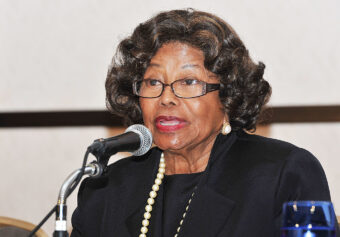By Karen Toulon
The racial justice movement sparked last year by the police killing of George Floyd exposed the dearth of Black professionals in numerous industries. Black in Gaming, a networking and advocacy group in the world of video gaming, proposed to do something about it.
The group, citing surveys that just 2 percent of professionals in the video game industry are Black compared with 13 percent of the U.S. population, launched the Big Five in Five campaign with its supporters to boost Black employment to 5 percent in the next five years. But the challenge for change surpasses simple math.
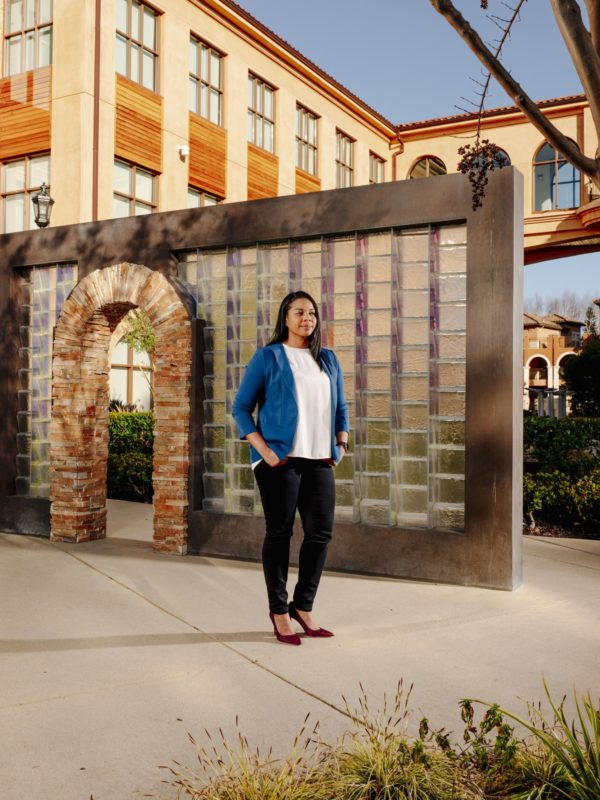
“We do not believe it will happen by itself,” said Laura Teclemariam, a senior animation product executive at Netflix Inc. who will serve as board chairwoman of the BIG Foundation once it’s certified as a nonprofit. “It will take a collaborative effort among organizations like BIG and corporations to address the talent pipeline and to build strategy to address closing the racial gap and removing any inequities in the system.”
There’s real money at stake. Global video game revenue was almost $160 billion last year and is forecast to rise to $200 billion in 2023, according to Newzoo, an industry analyst. The industry benefited during the pandemic as people forced inside turned to games for entertainment. The increase in titles for smartphones, new, faster wireless networks and the introduction of next-generation consoles also fueled sales gains.
The inequality in the video game business mirrors the overwhelmingly white, male, corporate culture found across Silicon Valley. Black workers are in single-digits at the biggest technology companies, particularly in leadership roles. It’s a similar story in venture capital. The Kapor Center for Social Impact reported in 2019 that just 1 percent of the estimated 10,000 tech startups receiving $137 billion in funding were led by a Black founder. Since 2015, Black and Latinx founders have raised about $15 billion, representing just 2.4 percent of the total capital raised during that time.
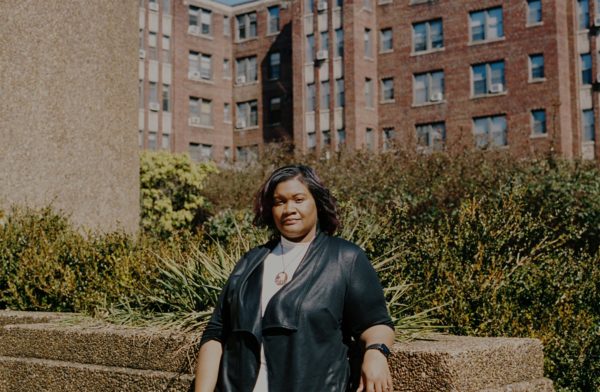
Latoya Peterson learned firsthand about the formidable barriers facing Black-owned startups trying to break into the video game industry. A co-founder of Brooklyn, New York-based Glow Up Games, she pitched venture capital firms and gaming investors for funding with no success while flagging her women-led studio’s development of a title based on HBO’s award-winning show “Insecure.”
“‘Insecure’ shut down Twitter on Sunday nights. We’re backed by HBO. And still we were getting told, ‘We don’t think we can help you,’” Peterson said.
Finally, friends and family stepped up, as did mentors in the game industry, and Techstars, an accelerator program for startups. Glow Up has closed its friends and family funding round, with about $200,000 raised. Peterson said its pre-seed round is about 75 percent committed to $1 million. Its game based on the show starring Issa Rae is scheduled to debut in the fall.
Gordon Bellamy, a veteran video game executive recognized for his advocacy on behalf of marginalized groups in the industry and now a professor at the University of Southern California, said Black professionals must be hired in major areas that generate value for the game companies if significant change is to occur: design, monetization, conversation and customization.
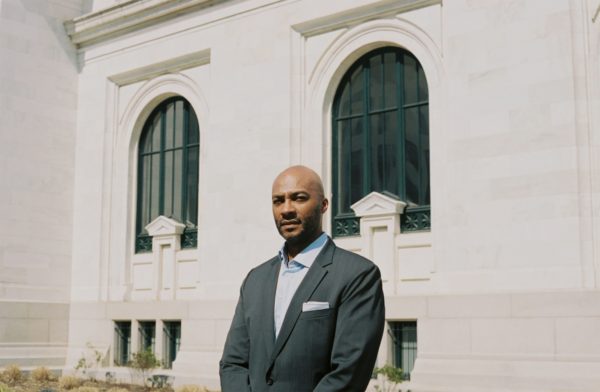
Take customization. “Customization is a default expectation of this generation,” Bellamy said, referring to game players. But customizing characters as Black or inserting “Black” music doesn’t mean influence over the core design of a game, access to how companies make money from that game or control of the conversation — the public discussion about the game in the press, for example.
“So if you want to get from 2 to 5 percent, you have to have more ownership in these four areas, because if you don’t own the design, the monetization, or the conversation, your numbers are going to be low, ” Bellamy said.
Electronic Arts Inc., the world’s biggest maker of interactive games, recently released its first diversity report, which showed Black workers accounted for 3.2 percent of its roughly 10,000 employees in 2020. The company has adopted outreach programs that include internships and mentoring from employees, including top managers.
“We want to build games for everyone,” said Kellyanne Dignan, senior director of corporate communications. “Part of doing that is making sure that we have the right, diverse talent because diversity ultimately will build better games.”
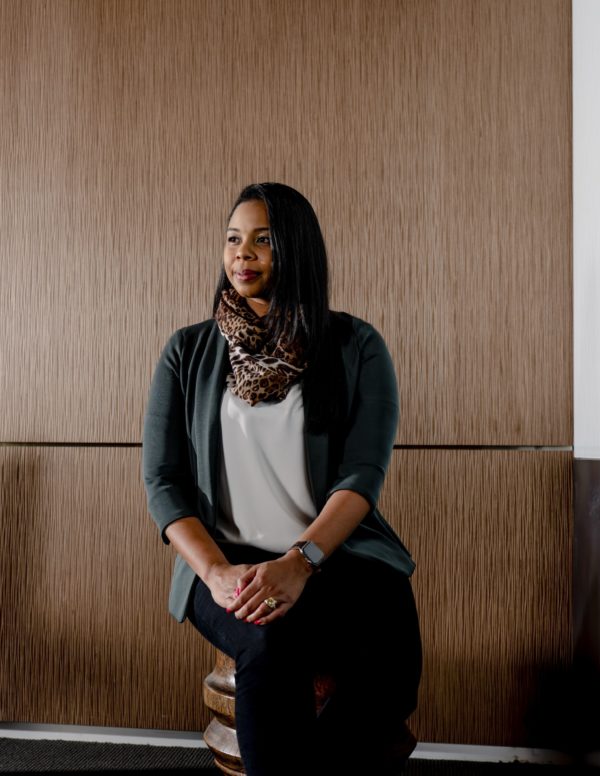
Chelsea Blasko, the co-CEO of Iron Galaxy Studios, has made inclusive hiring a focus at her Chicago-based company. Black employees make up 5 percent of the game developer’s 170 workers while 17 percent are women or non-male identified; the national average is 24 percent. Blasko said internships programs have helped to build a hiring pipeline for potential employees.
Creating diversity that lasts is dependent on Blasko’s kind of senior leadership commitment, said Nika Nour, the executive director of the IGDA Foundation. “It doesn’t mean a budget line, or a talking point or a checked box. You can’t say you did this training. It’s an intrinsic value you must practice day in, day out,” Nour said.
Investments in education and financial support for Black game creators are essential components of making the industry more diverse, said Stanley Pierre-Louis, president and CEO of the Entertainment Software Association, the advocacy organization for the $43 billion U.S. video game industry. “There are opportunities for companies to come together and say ‘how can we increase this pool more broadly so that we’re all identifying and creating the best opportunities for talent?’ That’s what’s been neglected for so long.”
One potential way to increase diversity would be to start with the players themselves, said Charles Kuykendoll, the director of Talent Acquisition at PlayVS, which runs esports leagues for high schools and colleges. Kuykendoll said that exposing student esport athletes to the business of gaming might spark their interest in development and ownership in the future. The company has boosted its headcount from 36 to more than 100 in less than a year, with 50 percent of its hires coming from underrepresented groups, including Black and women professionals, he said.
Fifteen-year-old gamer Davis Favors of South Orange, New Jersey, doesn’t see many Black faces among the protagonists of the games he plays as much as five hours a day. The teenager, who is Black, falls silent for a few beats, before remembering the “Black Panther-like” operator in Call of Duty, Black Ops Cold War. While character and narrative — not race — drive his interest, “the fact that I could barely remember any video games with Black main characters, but almost every single video game that I play, I could think of a white character instantly, it’s kind of sad.”
And if he and other gamers saw more?
“Seeing your favorite character with your skin color, it think it could definitely inspire kids, showing them they make it in the [gaming] world,” he said.
For more articles like this, please visit us at bloomberg.com.




